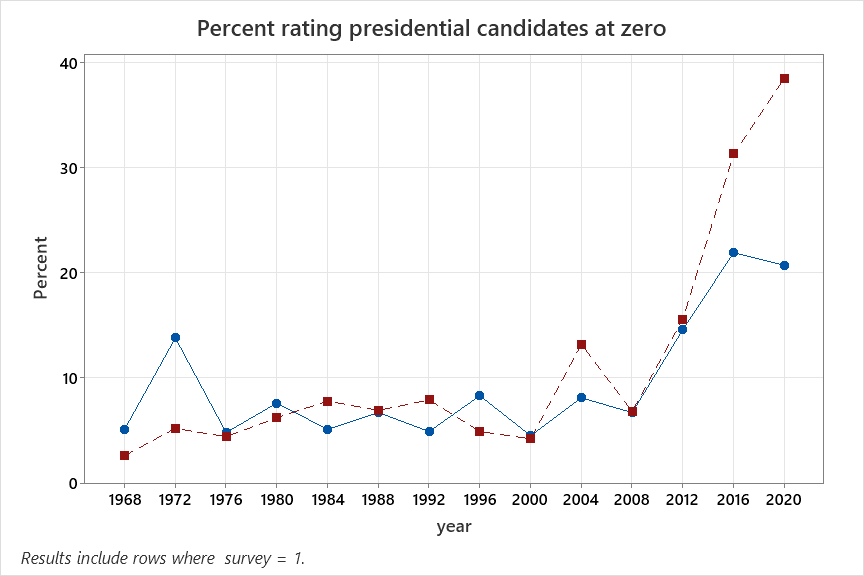A couple of months ago, some people were saying that Donald Trump's favorability ratings rose every time he was indicted (I've forgotten specific references, but I know I saw some). The idea seemed to be that some supporters had been drifting away until their sympathies were reawakened by what they regarded as persecution by the "deep state". Closer examination has shown that this isn't true, that his favorability ratings actually declined slightly after the indictments. But at the time, it occurred to me that the degree of favorability might be more subject to change--shifting from "strongly favorable" to "somewhat favorable" is easier than shifting from favorable to unfavorable--and that the degree of favorability will matter in the race for the nomination. On searching, I found there aren't many questions that ask for degree of favorability, and that breakdowns by party weren't available for most of them. However, the search wasn't useless, because it reminded me of the American National Election Studies "feeling thermometers" for presidential candidates, which ask people to rate the candidates on a scale of zero to 100. Here is the percent rating the major party candidates at zero:
With the exception of George McGovern in 1972, everyone was below 10% until 2004, when 13% rated GW Bush at zero. In 2008, things were back to normal, with both Obama and McCain at around 7%, but starting in 2012, zero ratings increased sharply.
The next figure shows the percent rating each candidate at 100. There is a lot of variation from one election to the next, but no trend. In 2016, 6.4% rated Trump at 100, which is a little lower than average (and the same as Hillary Clinton). He rose to 15.4% in 2020, which is the second highest ever, just behind Richard Nixon in 1972. But several others have been close, most recently Obama in 2012 and Bush in 2004, and it's not unusual for presidents to have a large increase in their first term (GW Bush, Clinton, and Reagan had similar gains). That is, Trump doesn't seem to have an exceptionally large number of enthusiastic supporters among the public (also see this post). I think his continued strength in the party is mostly the result of Republican elites' reluctance to challenge him, which is a mixture of genuine support and exaggerated ideas about his strength among Republican voters.


No comments:
Post a Comment